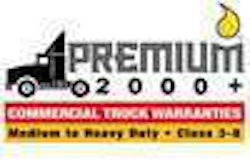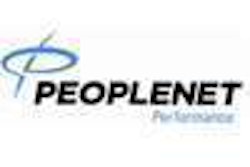Technology helps manage driver records By Aaron Huff
Before extending job offers to drivers, fleets build a skeleton file of past employment, motor vehicle records, credit history and other documents, many of which can be obtained quickly through online services. After hiring, managing driver files becomes an ongoing burden: The U.S. Department of Transportation requires employers to keep files current for drug tests, physical exams, safety records, annual MVRs, commercial driver’s licenses and endorsements. Now fleets of all sizes are gathering much more extensive and frequent driving records via onboard computers and other technologies. If managing paper and electronic files is stretching your resources away from more productive work, technology may offer a solution.
Compliance experts
Besides converting fleets’ paper records to electronic records, outsourcing firms provide ongoing auditing and notifications of incomplete, missing or expiring documents. Some firms also provide a Web-based platform for clients to access their driver documents from any location.
Compliance was the primary reason Valley National Gases chose to outsource its driver qualification files. The Wheeling, W.Va.-based compressed gas distributor employs 400 drivers at 90 locations. The company can mail, fax or directly scan documents to the Web-based Driver Qualification Data Service (DQDS) from Lee TranServices (www.leetrans.com). With DQDS, the fleet can limit, by user login, which files are accessible to certain managers or departments.
By outsourcing, Valley National Gases can be more proactive with compliance instead of reactive, and safety managers have more time to devote to more safety-sensitive functions within the company, says Dennis Forgash, safety coordinator for the company’s Mid-Atlantic region.
Outsourcing driver file management does not mean fleets lose control or flexibility. Rair Technologies (www.rairtech.com), which offers full-service outsourcing for driver qualification and log auditing, recently released a new version of its Web-based management platform. Users can create additional tabs to store driver files, as well as documents that are not required for compliance purposes, such as driver photos, videos and claims. Administrators can restrict access for each tab by user login, says Steve Wilhelm, senior vice president of marketing and business development.
Managing risk
Fleets that choose to keep both technology and driver files in-house can leverage new software to manage not only paper records but also an increasing amount of driver data from multiple databases and sources.
J.J. Keller (www.jjkeller.com) designed its Driver Management Online (DMO) software to eliminate redundant data entry by integrating data from multiple sources. Users can enter driver qualification data, attach scanned images and access files from any location. The software interfaces with online providers of pre-employment background checks, including USIS and First Advantage.
The company recently added an interface with Keller Mobile, an onboard computing system for electronic logbooks and driver/vehicle reporting, to feed DMO with driver scorecard data such as hard braking, idle time, speed and fuel economy, says Frances Crowley, sales support manager for J.J. Keller’s online (ASP) software.
In addition to monitoring driver files for compliance, SafetyBox – a Web-based software system from Thought Drivers (www.thoughtdrivers.com) – also is designed to help fleets manage all daily tasks for driver safety and performance. The software can integrate with onboard computing and mobile communications systems to manage exceptions for speeding, hard braking and other risky events.
When an incident occurs, SafetyBox sends e-mail alerts to the appropriate people. The system can assign in-cab training modules automatically to drivers based on the type of incident, and can document the test results, says Nick Goodell, business development director for Thought Drivers.
EBE Technologies (www.ebe-inc.com) developed its Ships Driver Management software to capture data and build workflow behind data from any source related to driver safety, compliance and performance. The software features a Driver Manager Dashboard that shows exceptions or notifications, such as an upcoming CDL expiration, a physical exam, a sudden dip in fuel economy or a hard-braking incident. Each driver manager has his own dashboard and “workflow queue” to see and take action on the exceptions. Forms also can be sent to drivers to complete, and meetings can be scheduled electronically by sending a message through mobile communications.
To close the loop, if a task is not completed – such as resolving an expired CDL – the software can change a driver’s status in a fleet’s dispatch system from active to inactive. A load planner or dispatcher will be unable to assign loads to the driver until the status is changed, says Cindy Nelson, vice president of marketing and business development for EBE Technologies.
ACS launches Web-based driver orientation program
ACS Expedited Solutions, a provider of business process improvement and outsourced IT solutions in the truckload market segment, launched Command Solutions, a Web-based driver orientation program for trucking companies of all sizes. The new service is designed to allow fleets to save millions of dollars in travel and lodging costs by allowing drivers to complete pre-hire paperwork, orientation and testing online.
When the driver successfully completes all orientation testing online, they travel to the fleet facility for a road test, drug test and introduction to the carrier. ACS says this process significantly reduces costs, creating opportunities for better truck-to-revenue ratios and less downtime for drivers while in orientation.
In Brief
ACS Expedited Solutions (www.acs-inc.com) announced a new five-year agreement with Flying J Communications for the placement and positioning of TripPak Truck Stop Scanning services at all participating Flying J locations. The contract adds 150 new locations to ACS’ current 383 locations to create what ACS says is the largest truckstop scanning network in the country.
TMW Systems (www.tmwsystems.com) now offers an interface with Carrier411 Web services for both TMWSuite and TruckMate, key products in the company’s enterprise transportation software line.
ALK Technologies (www.alk.com) released PC Miler 23. Among the new features are a routing and mileage solution that includes carbon emissions and intermodal analysis functionality, as well as critical map data updates such as truck restrictions and truck-specific toll costs.
Decisiv Inc. (www.decisiv.com) announced the availability of FleetBasic, a no-charge version of the Decisiv Service Management Platform (DSMP) designed to streamline communication between maintenance service providers and over-the-road trucking operations, as well as local and regional fleets.
Vigillo (www.vigillo.com) announced that the private fleet of Naperville, Ill.-based Nalco Co. adopted its Web-based risk management platform for the delivery of policies, forms, training, assessments and management reports.
CarrierWeb (www.carrierweb.com) introduced a new website and added geofencing for sending instant exception alerts when a truck deviates from its defined route.











